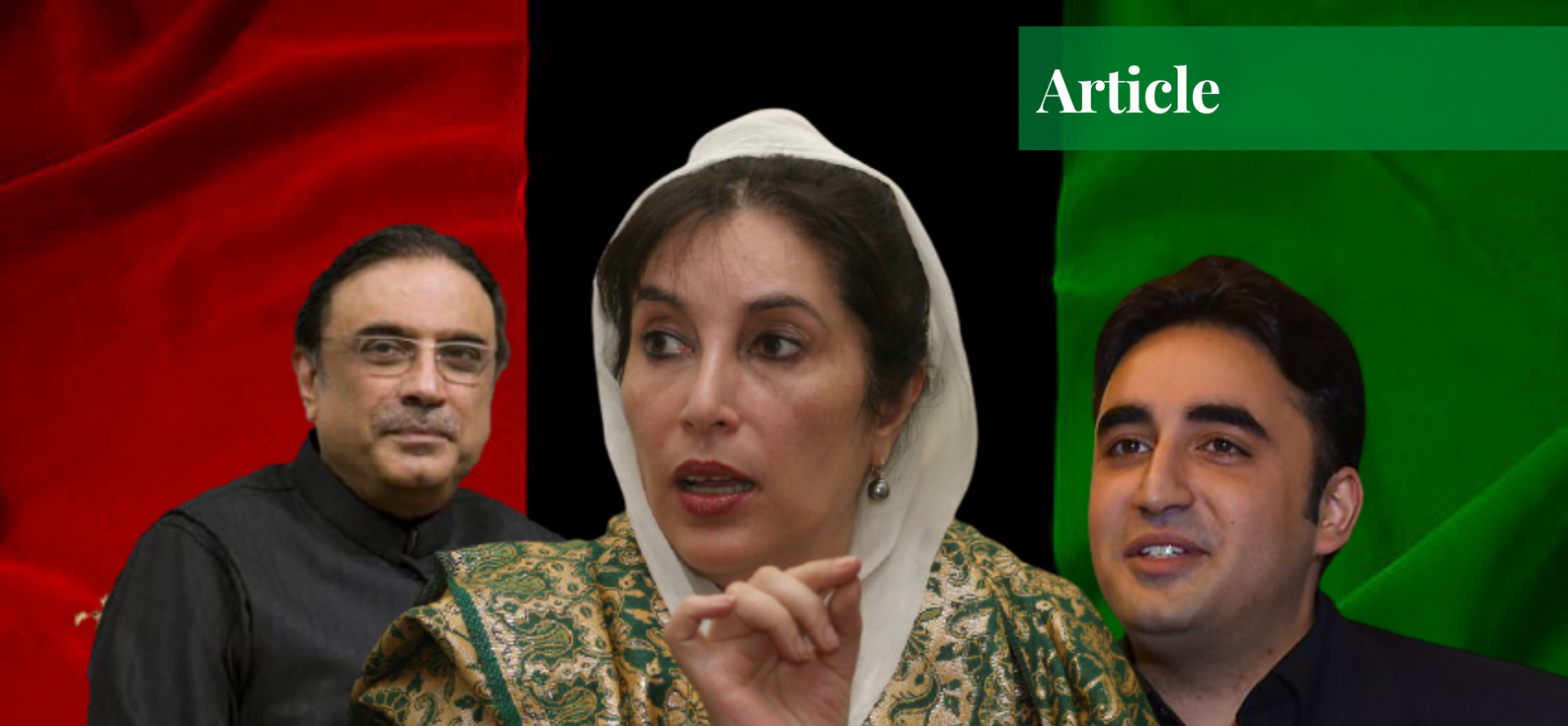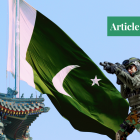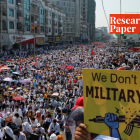Muhammad Mohsin has an undergraduate honors degree from the University of Hertfordshire. He is an avid reader and has a keen interest in local and international politics.
Introduction
Pakistan Peoples Party (PPP) has been historically anti-establishment and democratically progressive. It has a rich history of standing up to usurpers and dictators of its time. The party has worked hard and made real sacrifices for the continuation of democracy. However, since the assassination of Benazir Bhutto, it had a hard time finding its purpose. The party which was once a national mammoth has been reduced to a mere provincial party in Sindh.
The arrival of Bilawal Bhutto Zardari and his brand of politics revitalized the party to some extent. The hardcore loyalists who once believed in the PPP ideology had something to believe in once again. But all the revolutionary rhetoric of Bilawal Bhutto Zardari has been discarded as PPP, once again, seems to be compromising on its principles by looking for a chance to strike a bargain.
Its supporters would have you believe that Asif Zardari is a brilliant Machiavellian politician and his brand of politics would ensure PPP’s path to the federal government. But is he what they believe him to be or will this bury the party once and for all and leave its hardcore loyalists disenchanted with the overall direction of the party?
Background
It is important to reiterate a few things first before proceeding any further. PPP helped form the Pakistan Democratic Movement (PDM) back in September 2020. It worked effortlessly to unite a motley crew together under a single banner for the fulfillment of its 12 points “Charter of Pakistan”. The charter has some worthy goals, including “reforms for holding free and fair elections, promotion of basic human and democratic rights, freedom of media and most importantly ending political intervention by extra-constitutional forces and upholding the supremacy of the constitution.”
The alliance helped PPP become relevant again. It got the party the needed attention on media and brought Bilawal Bhutto to mainstream politics, on par with the likes of Mian Muhammad Nawaz Sharif and now his very charismatic daughter Maryam Nawaz. Despite being a party that was relegated to just one province, the alliance greatly helped the optics of PPP as it was bargaining and fighting at the national level against the federal government.
For many hard-core PPP supporters, this was a sign that the party was reverting to its original roots. It once more had an ideology and more importantly for its supporters, something to believe in. Not to mention PPP has a long history of standing against dictatorships and authoritarian forces.
The late Benazir Bhutto stood against the dictatorship of Gen Zia and faced prison as well. All of this greatly elevated PPP to the national stage and could have allowed Mr. Bilawal Bhutto Zardari to emerge as a national leader just like his late mother. So, what went wrong?
Peoples Party’s Strategy
To understand where and what went wrong, it is important to understand PPP’s strategy first. During the last PDM huddle, Bilawal Bhutto sat on the sidelines and his father, the former President Asif Zardari, participated via video link. The meeting was very important as it was to decide the fate of the motley alliance. The agenda was to decide whether to submit resignations or not.
Now it was understandable that PPP would be reluctant to sacrifice its Sindh government only to resign for another election, which will most likely get it another term in Sindh at best. What stood out though was how PPP rebuffed the suggestion of other parties, and how leaks from the huddle were provided to the media during the ongoing session.
Following the meeting, rumors abounded that the Pakistan Peoples Party will backstab the opposition alliance and hopes to become the new “selected”. Not to mention the barrage of rumors already on media predicting the former president’s desire to use PDM to strike a favorable deal with powers that be. Even months before the crucial meeting some even went on to predict that the father and son duo will soon become “taabedar”. It certainly did not help with optics then and it certainly does not now.
Now comes the real fun part; the former president, Asif Zardari, thinks he can cozy up to the establishment and present his son Bilawal as an alternate to Prime Minister Imran Khan. He believes that Pakistan Tehreek-e-Insaf’s (PTI) incompetence and governance woes present a unique challenge to the establishment because it is being criticized for propping up and supporting an incompetent hybrid set up. As Nawaz Sharif and his ilk set their foot down and turn up the heat on the powers that be, Pakistan Peoples Party will be forced to re-evaluate and look for benign and acceptable alternates to the powers that be.
That is precisely why the Pakistan Peoples Party adopted a softer tone against the powers that be, in contrast to the name and shame approach by the Pakistan Muslim League Nawaz’s (PML-N) supreme leader, Nawaz Sharif. The former president thinks that he can get the establishment to reevaluate its choice or at least secure its neutrality to help bring down Prime Minister Imran Khan, in hopes to prop up his son as the future chief executive under some form of a coalition government.
Pakistan Peoples Party, under Asif Zardari, cites that the success in the senate elections is due to its efforts to secure the supposed neutrality. However, critics point out that the strategy has failed since the alleged neutrality was ephemeral at best and the election for Senate Chairman and Deputy Chairman proved so.
The Fault in the Strategy
This brings us to what’s wrong with PPP’s strategy. Well, regardless of the supposed benefits that could accrue, which by the way are questionable to begin with, Asif Zardari’s realpolitik has immensely endangered the party’s credibility. The core supporters of PPP are left disenchanted with his style of politics and think the party has no core values to stand up for.
Furthermore, it hurts whatever persona Bilawal Bhutto Zardari has built for himself; many believe that he can’t even take control of his party and have a coherent policy. According to many analysts, the Pakistan Peoples Party should not rely on the establishment as Asif Zardari tried to strike a similar deal when he backed Sadiq Sajrani for Senate Chairmanship back in 2018 and helped bring the PMLN government down in Balochistan.
PPP also ensured smooth sailing for PTI’s Arif Alvi as the president of Pakistan when it unilaterally nominated Aitzaz Ahsan for the presidency, instead of backing the opposition’s joint candidate Maulana Fazlur Rehman or coming up with someone more acceptable to other parties like Yousuf Raza Gilani.
Interestingly, “out of the 432 votes cast by members of the National Assembly and Senate, Alvi secured 212 votes while opposition’s Maulana Fazlur Rehman bagged 131 votes. Pakistan Peoples Party’s Aitzaz Ahsan managed 81 votes while eight votes were rejected.” If one were to total the votes cast by the opposition, they are the magic number 212.
The opposition, from the very beginning, could have been a thorn in PTI’s side but it could not precisely be that due to Asif Zardari’s desire to become a favorite of the powers that be. However, that did not happen, mainly as a result of accountability drive and its actions against Asif Zardari and his family. Over the next few months Asif Zardari, his sister Faryal Talpur, and other senior members of the party had to face National Accountability Bureau (NAB) references and even jail.
Instead of emerging as a national leader, Bilawal Bhutto Zardari is being confined to Sindh if PPP does not change its course. Any chance PPP had of securing a no-confidence motion against the PTI government in Punjab and the center, is now out of the picture. Overall, this is a lose-lose situation for PPP. It not only lost whatever credibility it gained since Bilawal B. Zardari took control of the party but it also might just end up losing its value to the establishment sans its stake in PDM.
It’s time for the new leader of PPP to truly decide which direction he wants his party to take. He can opt for the path of his late mother Benazir Bhutto, face persecution and even jail but emerge out as a national democratic leader, or he can be content with becoming the next Pir Paghara of Sindh.
If he is serious about following the footsteps of his ancestors then he must, first of all, do what Benazir did when she gained control—get rid of all the uncles and bring his own team of people up to entrench his vision and leadership in the party. In which case, he just might help PPP become relevant again. If not, the party always has Sindh but for how long?
If you want to submit your articles and/or research papers, please check the Submissions page.
The views and opinions expressed in this article/paper are the author’s own and do not necessarily reflect the editorial position of Paradigm Shift.



















